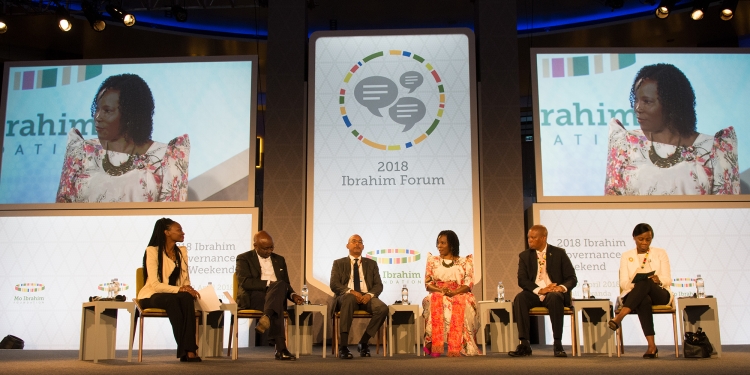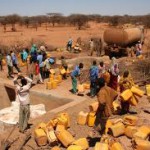Public services in Africa are critical to the continent’s future but are currently overlooked and under-resourced, and struggling to cope with unprecedented demands from rapidly growing populations.
However, through a combination of wise leadership and active citizen engagement, new opportunities exist to shape public services that not only respond to these challenges, but also strengthen the social contracts between governments and the people they serve.
These are among the key conclusions to emerge from the 2018 Ibrahim Forum, held in Kigali on Saturday as part of the Ibrahim Governance Weekend.
Mo Ibrahim, Chairman of the Mo Ibrahim Foundation, said: “Our public services are vitally important, but we are not talking about them. There have been endless meetings in Africa, or about Africa, discussing everything under the sun, but we never discuss our own public service and public servants. These are the people who teach our kids, provide electricity, clean water, hospitals – the people doing everything around us – and we have never stopped once to think what is going on in this sector.”
The Ibrahim Forum brings together a powerful coalition of African and global leaders to discuss an issue that is critical to the continent’s future. This year’s Ibrahim Forum focused on the Foundation’s latest research report, Public Service in Africa. As a new component of the Ibrahim Governance Weekend, the Foundation this year introduced the Next Generation Forum, a meeting of young leaders from 35 countries whose recommendations fed into the Ibrahim Forum.
The Ibrahim Forum’s first session – Growing expectations for public delivery – discussed the changing shape of demand directed at African public services, and the need to assess who should be responsible for meeting and financing these demands.
Herman Mashaba, Mayor of Johannesburg, outlined some of the particular challenges facing urban Africa in relation to public service delivery. He said: “Housing really is the number one problem. Second, it is unemployment. In Johannesburg, we have an unemployment rate of 33 per cent and every month, Johannesburg attracts a minimum of 3000 people from rural areas.”
Ibrahim Assane Mayaki, CEO of the NEPAD Planning and Coordinating Agency, and former Prime Minister of Niger, said: “When we were building Niger’s national development plan, we organised a survey to ask citizens about their priorities for public services. All of us were guessing what they would be – education, agricultural production etc. But justice came out as the priority for our citizens. It opened a debate, which has continued, on how we should intensify the consultation process around the delivery of public services.”
Donald Kaberuka, Chairman and Managing Partner of South Bridge Partners, and former President of the African Development Bank, said: “At the end of the day, citizens are looking for three things. Number one, public service should be clean. It should not steal their money, especially when they have very little. Number two, providers should actually deliver the service for which they have been paid. Number three, they should be accountable.”
The second session – Assessing the current supply of public services – explored the challenges facing public services, including skills, resources and the difficulty of attracting talent, including the issue of ‘brain drain’ towards private sector and abroad. Panellists discussed success stories of governments creating innovative partnerships that support both the delivery and financing of public services.
Fanfan Rwanyindo Kayirangwa, Minister of Public Service and Labour in Rwanda, said: “In Rwanda we have really focused on our human resources. We invest in our human capital. We have many opportunities for young people to have appropriate training and that has helped us to build a stable public service.”
Attracting the best and brightest minds to the public sector requires embracing technology and innovation, said Winifred Oyo-Ita, Head of Civil Service of the Federation, Nigeria. “Having public records available at the touch of a button improves issues of performance, discipline, and also integrity. You can do much more monitoring and evaluation, and, importantly, know where you are falling short.”
Adesoji Solanke, Mo Ibrahim Foundation Scholar and Next Generation Forum participant, said: “I’ve spent my entire career in the private sector. If I am going to potentially join the public service, what I would like to see is an environment where integrity counts. Pride in your workplace matters.”
The third session – Building a sound contract between citizens and public service providers – explored the need to develop a stronger contract between the consumers and suppliers of public services, built on accountability, ownership and consent to taxation.
Highlighting the importance of active citizenship, Jay Naidoo, Founding General Secretary of the Congress of South African Trade Unions, said: “Only the power of the people can ensure there is accountability. We have to understand this is an interactive process where the bottom-up is more important than the top-down.”
Stressing the imperative for governments to be open and transparent with their citizens, Ngozi Okonjo-Iweala, Chair of the Board, Global Alliance for Vaccines and Immunization, and former Minister of Finance in Nigeria, said: “Once citizens have information and they know what is happening, they become empowered. It is only those authorities who don’t want to build trust who will ensure that their citizens don’t have access to accurate information.”
Barkha Moussa, Second Secretary in the Ministry of Foreign Affairs of Mauritius, and a participant in the Next Generation Forum, stressed the need for young people to actively participate in shaping the public services they want. “Actually, we are not the next generation forum, we are the now generation forum – because we are already here!”
The Ibrahim Forum concluded with an on-stage conversation between Mo Ibrahim and President Paul Kagame, of Rwanda and Chair of the African Union. Commenting on reform of the African Union, President Kagame said: “We have to change the mentality of how we do things on our continent – whether it is about efficiency, pride in ourselves, or institutional reforms. We also have to look at the financing of the African Union. It is not proper that we don’t fund our own budget, because we can. So if we can, why don’t we do it?”
The Ibrahim Governance Weekend began with a special Leadership Ceremony to honour Ellen Johnson Sirleaf, former President of Liberia and winner of the 2017 Ibrahim Prize for Achievement in African Leadership. Accepting the Prize on behalf of “the many women and men who helped to navigate the profound complexities of the post-conflict country that is Liberia”, President Sirleaf announced she would establish the Ellen Johnson Sirleaf Presidential Center for Women and Development. The Center will focus on supporting women as agents of change, makers of peace, and drivers of progress.
The weekend wrapped up with a star-studded music concert featuring some of Rwanda’s and Africa’s biggest stars, including Riderman, Phionah Mbabazi, Charly & Nina, Sauti Sol and Peter P-Square. Addressing the crowd of 3,000 guests, Mo Ibrahim said: “We’ve had a wonderful discussion this weekend and we wanted to end it with a party to say thank you to you, the young people of Rwanda. You are the future.”








